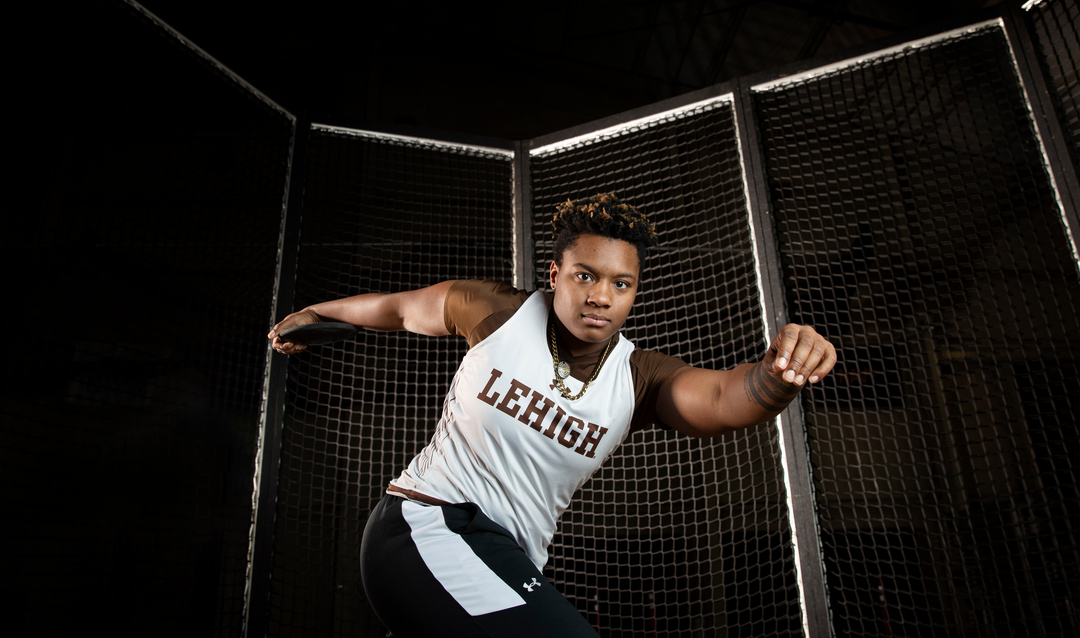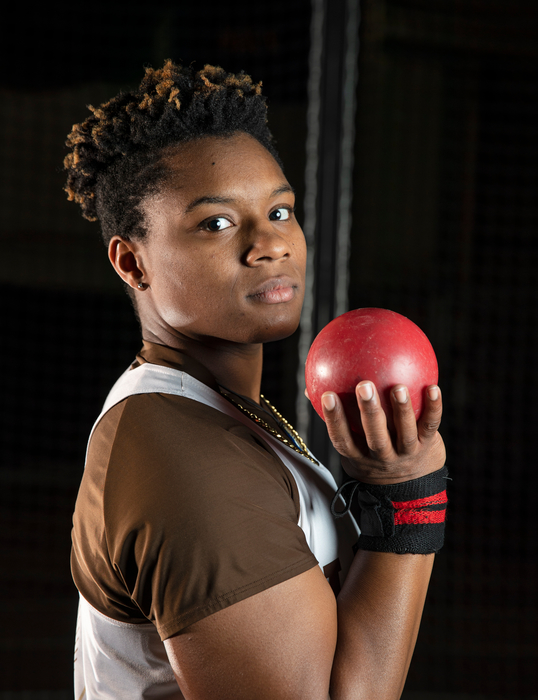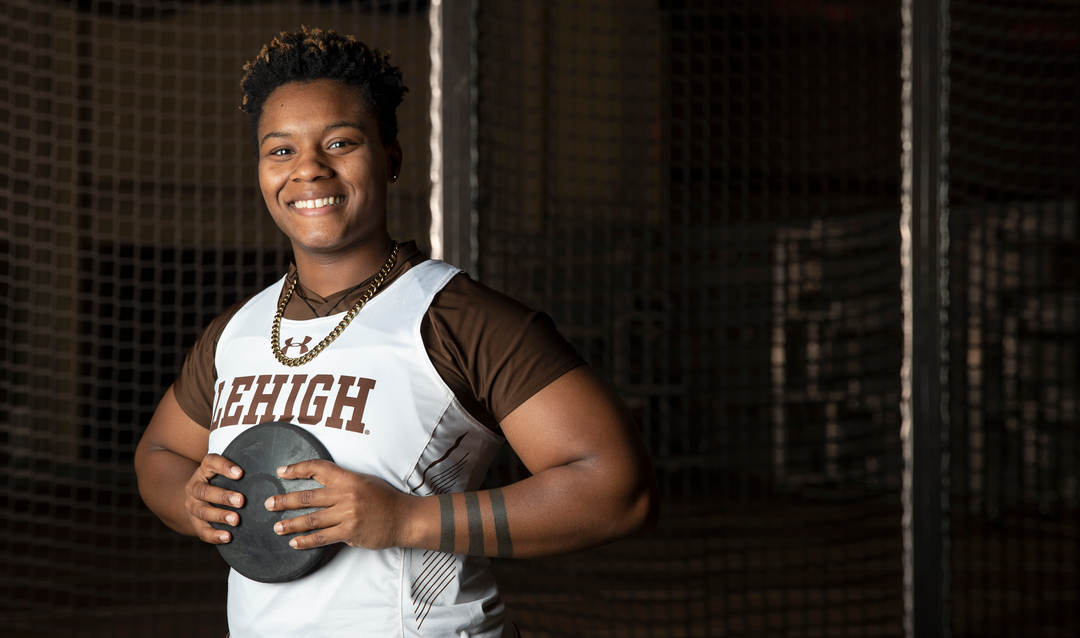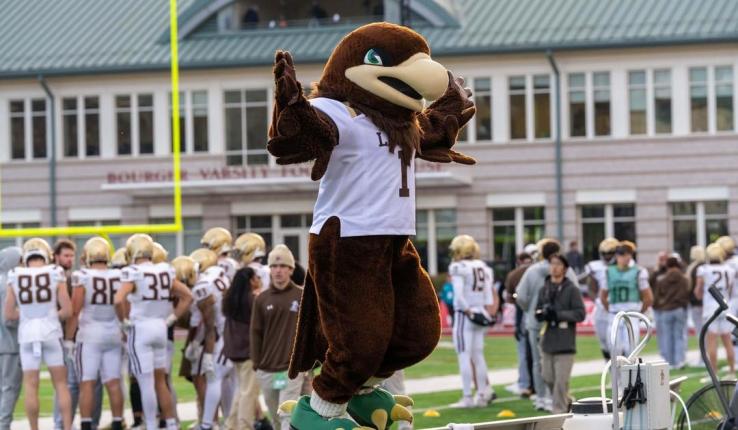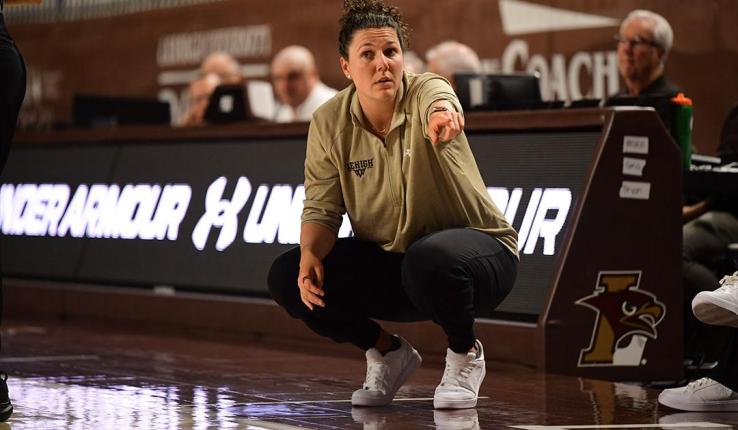WHAT’S YOUR PROUDEST ATHLETIC ACHIEVEMENT?
That's a tough one. I don't know. Hopefully, I won't have had my proudest moment by the time this next season comes because I'm hoping to do a lot of great things. In high school, my freshman year, we won the first league championship in soccer in my school’s history. It was a fun year in general, we had a good track year and a good soccer year. So I’d probably say Friends League soccer champions for the first time.
YOU’RE A FOUNDING MEMBER OF THE LEADERSHIP COUNCIL FOR THE STUDENT-ATHLETES OF COLOR. HOW DID THAT COME ABOUT?
Divine [Buckrham ’21]—he was on the football team—got together with some [athletics] advisors and saw that there was a need for a student athletes of color group because Lehigh hadn't had one previously. They eventually gauged the interest of others wanting to take part in creating this legacy and providing a space for us, for athletes of color, to be able to come and feel seen and feel like they're around people who can relate to them. Divine, [former Lehigh volleyball coach] Xiomara "Zee" Ortiz, [Lehigh track and field assistant coach] Khayla [Atte] and all the advisors who were involved, they helped steer everyone who wanted to put the time and effort into creating this thing that would hopefully better the student athlete of color experience at Lehigh.
AND YOU’RE AN EXECUTIVE BOARD MEMBER OF FLIGHT 45?
Yeah, Flight 45 is the Leadership Development Program in the Lehigh Athletics department, obviously run by some great advisors—Julie Ammary [director of athletics leadership development], Cait Gillard [assistant director for athletics leadership development] and Katie Guynn [director of student-athlete academic services], shout out. But, yeah, I'm an e-board member. I'm the captain of the student athlete council, because my other co-captains unfortunately had to step away because of commitments in other areas. It's been a fun experience, and I'm just grateful that I've had the opportunity to hopefully impact other student athletes’ lives the way that Flight 45 has impacted mine and allowed me to grow into the person I am today. And also to work on leadership development. Hopefully we've inspired some type of unity within the athletics department. I've learned a lot.
WHO HAS BEEN YOUR BEST MENTORS?
My mom, definitely. She's had the biggest impact on me. Athletically, academically, she was the one who did the research for me when I was doing the college search. I let her do all that stuff. And in terms of athletics and just being responsible, my mom's the biggest influence.
When it comes to leadership, I'd have to say Cait and Julie. They've been huge influences in my career at Lehigh because of Flight 45, my sophomore year, when I was in emerging leaders, that had the biggest impact on me. That's why I wanted to be a part of the e-board, because I became a better human being because of it, and I learned how to be a leader, and I wanted to be able to help other student athletes feel that type of achievement, that type of fulfillment. Athletically, my coaches have the biggest influence on me. Allison Taub [assistant track and field coach with the throwing group] has been a great addition. She's someone that I've been able to put my trust in.
WHAT’S SOMETHING MOST PEOPLE WOULD BE SURPRISED TO LEARN ABOUT YOU?
Maybe that I used to knit. I would knit these bracelets that I would just wear in to the ground.
WHAT’S THE BEST THING ABOUT LEHIGH’S TRACK AND FIELD PROGRAM?
The track program at Lehigh has been willing to try to evolve as best as we can and adapt to different situations. The coaches have all made a commitment to trying to make, first, a better track and field program, and then a better Lehigh on top of that. We've been willing to put in the work to try to get to that, to try to make steps towards those goals. I think the coaching staff is the first to admit when they're wrong, and then they take steps to try to amend any mistakes that have been made or try to move forward as a program, trying to make athletes as comfortable as they can be. I'm saying this to refer to the turmoil that we've been in as a society over the past couple of years. And then I've seen the coaching staff try to make efforts to be better people and then obviously that is a trickle-down effect. If you're better as a person, you are able to have that influence on other people around you and the other things that you're doing.
WHAT’S THE BEST THING ABOUT LEHIGH AS A UNIVERSITY?
The campus. That's what brought me as an architecture major. And then, I don't know if I can say this enough, but I think the leadership development and the leadership program that Lehigh Athletics offers has been a great resource for all student athletes. It just helps to make us better people. If we're going to make a better Lehigh, then it starts with a better Lehigh Athletics department. That, as a result, has a positive impact on campus, and hopefully, has more of an influence on campus with non-athletic department people involved.


